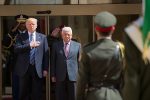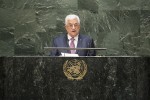Leslyn Lewis, a candidate for the Conservative Party of Canada leadership that will be decided in the coming days, made a stir last week when she invoked the Nuremberg Code, apparently with regard to coronavirus vaccines.
The Nuremberg Code is a postwar set of principles on medical ethics arising from the horrific medical experimentations of the Nazi era. Although Lewis did not explicitly mention COVID-19, the issue was clear in context. She warned of government overreach, saying, “even in modern times the tenets of informed consent and voluntary participation in scientific experiments can be easily undermined by even our modern governments.”
If for no better reason than avoiding a communications crisis, reasonable candidates for elective office should avoid comparing things to Nazism. In almost every instance, there is nothing to be gained. In this instance, where the candidate appeared to be referring to a vaccine that can prevent or seriously reduce the impacts of a potentially deadly virus, the comparison is irresponsible and base.
Around the same time as Lewis was causing controversy here in Canada, Mahmoud Abbas, the Palestinian president, stood next to the German chancellor, Olaf Scholz, and declared that Israel had perpetrated “50 holocausts” on the Palestinians. Scholz has been criticized for not immediately condemning Abbas’s atrocious act of Holocaust desecration – words that took place on German soil.
This incident was a flashback to the time, in 1999, when Hillary Clinton, then the U.S. first lady, got in trouble for standing on stage with Suha Arafat, wife of Yasser, when Mrs. Arafat accused Israel of poisoning the Palestinian water supply. This accusation, an unoriginal claim pilfered straight from antisemitic Medieval European well-poisoning canards, was akin to the latest outrage from Abbas in both form and international reaction.
About the only time the West expresses any concern about such defamations is when they are uttered in the presence of world leaders in front of less credulous media than the Palestinian leaders face at home. While Clinton and Scholz certainly deserve some censure for not speaking out instantly in the face of such overt libels, their presence is a sideshow to the main event: a narrative that is founded on grotesque demonizations.
Abbas is no newcomer to Holocaust revisionism and defilement. His PhD dissertation at a Soviet university contests the number of Jewish dead and accuses Zionists of participating in the Shoah to advance their nefarious aims.
These sorts of lies – “holocausts,” poisonings, genocide, even Zionist sharks attacking tourists – are routine fodder for Palestinian leaders, newscasters, media and even the United Nations-funded Palestinian education system. It is the nature of dictatorial leaders and undemocratic movements that they grow intellectually lazy, having groomed an audience so inured to lies and exaggerations that they will accept, or at least not contest, the most depraved allegations. After 70-plus years of exposure to increasingly preposterous conspiracies like Zionist-trained sharks snapping at European tourists at beach resorts, many are ready to accept and repeat them.
“A lie gets halfway around the world before the truth has a chance to get its pants on,” Winston Churchill colourfully said. Churchill died before the internet was born. Today, a lie gets even farther even faster.
Mix the range and speed of the internet with millennia of conspiracies about Jews and the reality that most people are inundated with Israel-Palestine news without context, and it is easier to understand why people who are overwhelmed by complexity and who seek simple solutions don’t resist or even question such lies.
For similar reasons, we must both keep a critical eye on how science evolves with coronavirus and vaccines, as well as encourage people to get vaccinated, to reduce the risks of disease. Terrible experiments have been done on marginalized populations so, as a society, we must be sensitive to these experiences and traumas. The mistrust has a real history, but some people are using this fact to sow more mistrust in institutions and governments, which adds to the fires of conspiracy, which is bad for everyone, but in particular marginalized and minority populations.
While miles apart in quality, the remarks by Lewis and by Abbas deserve condemnation. The world, especially now, tends to move on quickly from one moral atrocity to the next, from this outrage to the next. But we cannot let these things go unchallenged – whether they come from dictators or from potential leaders in a democracy. The job of decent people is to come along and clean things up. It’s a dirty job. But somebody has got to do it.


